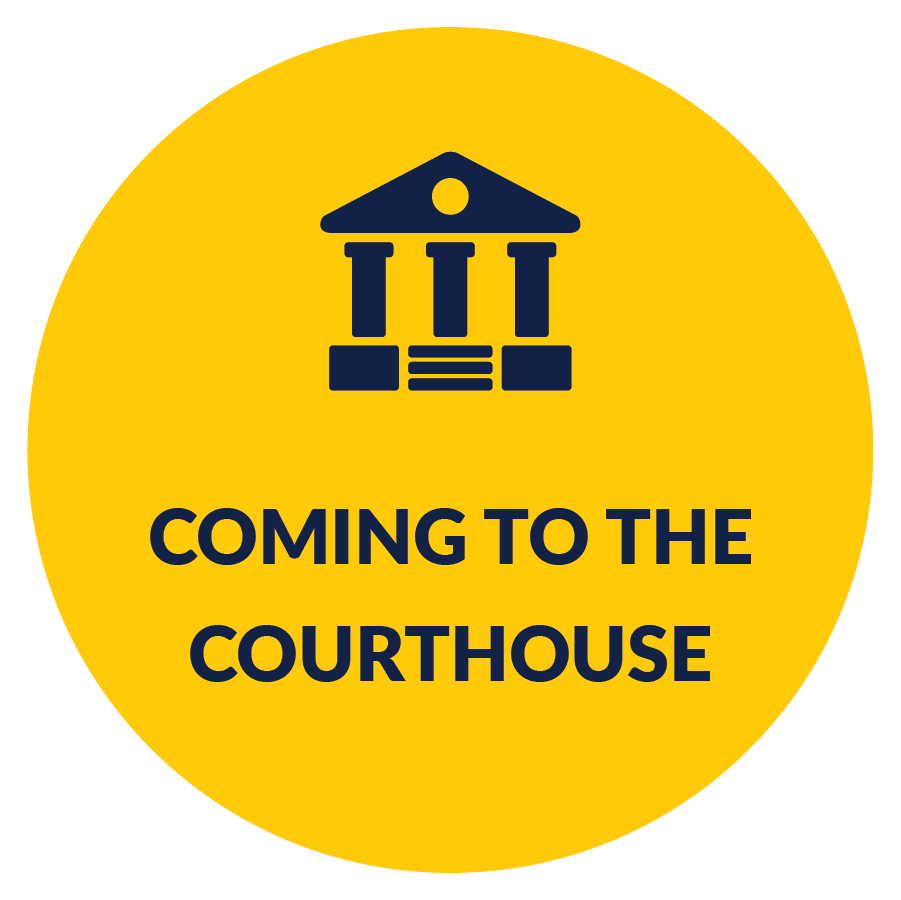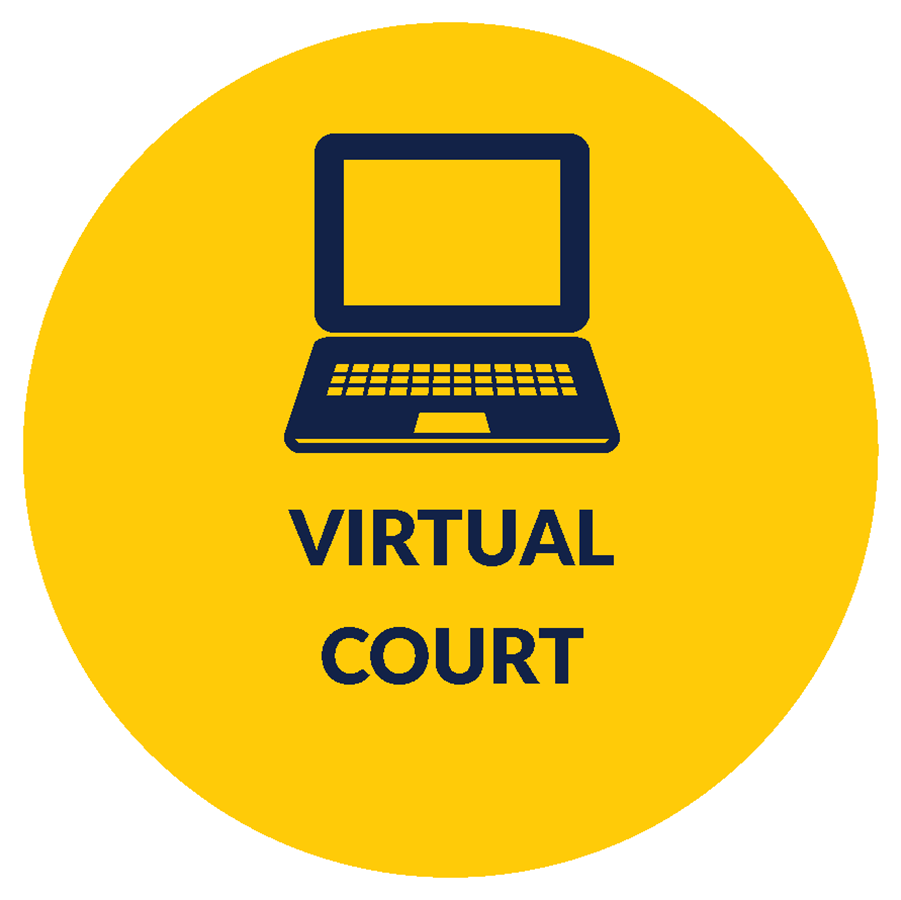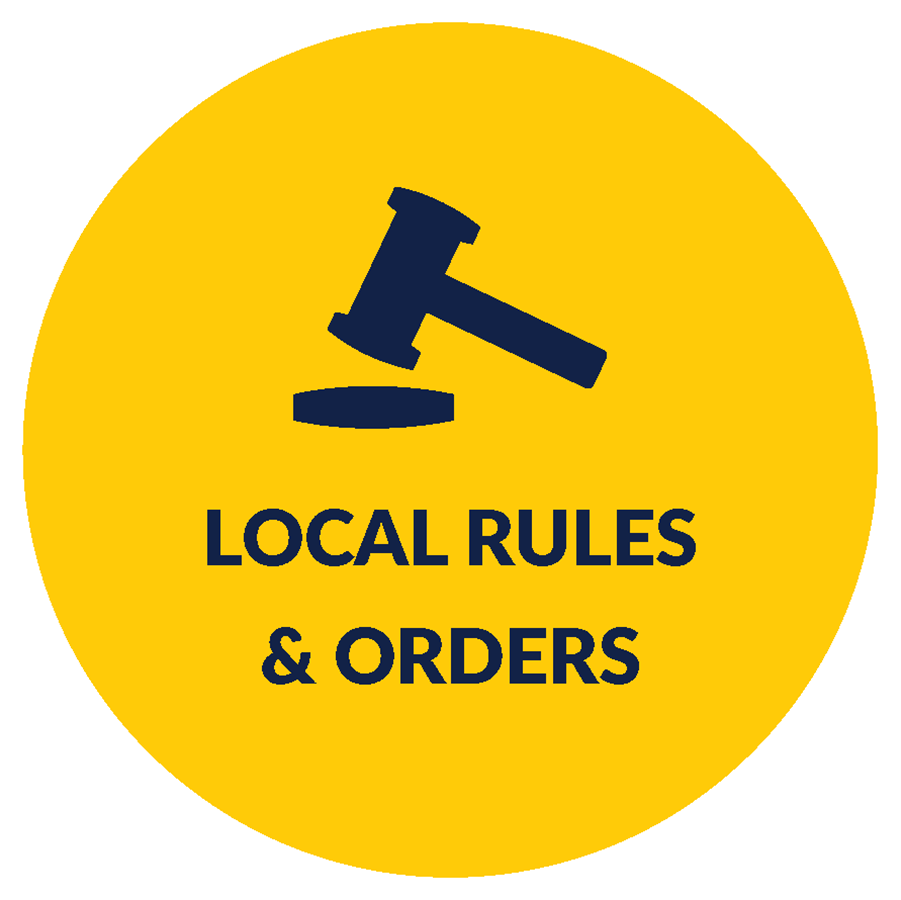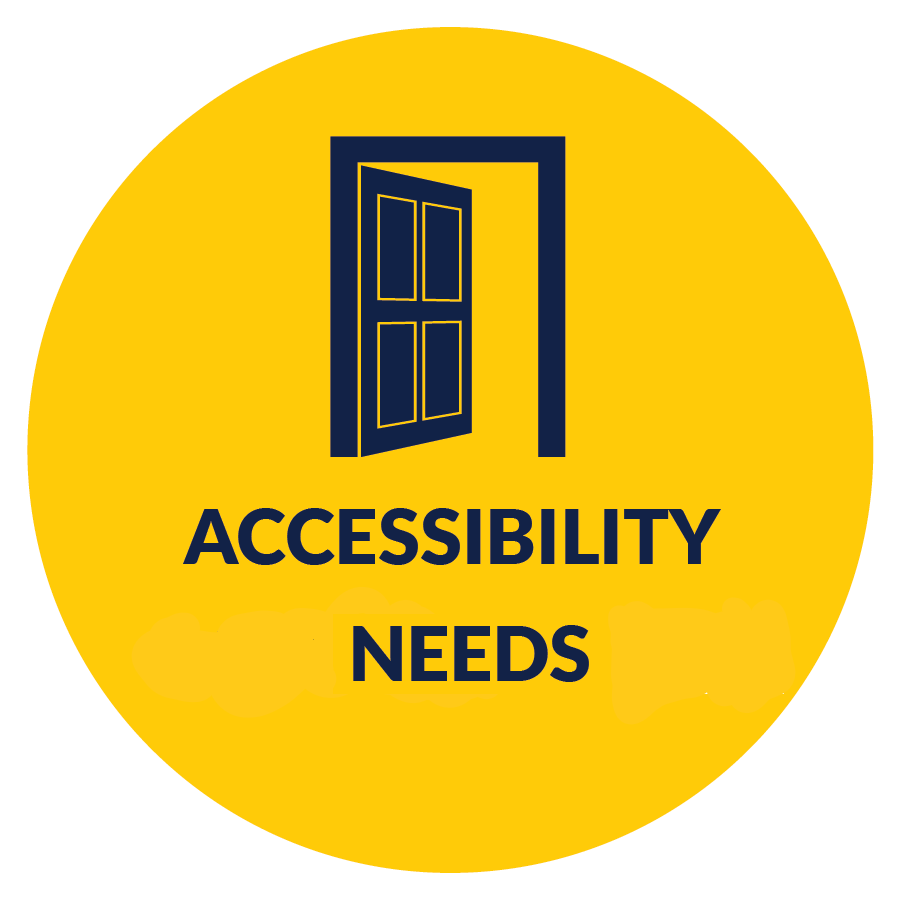1.01 Divisions of the Court
1.02 Places of Holding Court
1.03 Proceedures for Contagious Conditions
1.04 Court Hours
1.05 Judicial Legal Holidays - Winnebago County
1.05-A Judicial Legal Holidays - Boone County
1.06 Prompt Attendance Required
1.07 Access to Judge's Chambers Area - Winnebago County
1.08 Prohibited Conduct
1.09 - Use of Portable Electronic Devices Within Court Facilities - Communication, Photography, Video and Audio Recording
1.10 Safety Protocols
1.11 Jury Trial Calendar
APPENDIX A - SAFETY PROTOCOLS FOR MEDIATORS
APPENDIX B - SHERIFF'S SAFETY PROTOCOLS FOR COURTHOUSE
1.01 Divisions of the Court
Section 7 (c) of Article VI of the Illinois Constitution authorizes the chief judge of the 17th Judicial Circuit to provide for divisions, general or specialized, and for appropriate times and places of holding court in said circuit.
Subject to the authority of the Illinois Supreme Court and to the further order of the chief judge, divisions of court are created as follows:
Criminal Division - Includes all CF (Criminal Felony), CC (Criminal Contempt), CM (Criminal Misdemeanors), DT ([DUI] Driving Under the Influence), TR (Traffic), OV (Ordinance Violations), CV (Conservation Violations), and CV (Civil Law Violation) cases.
Civil Division - Includes all L (Law over $50,000) LM (Law $30,000 - $50000), AR (Arbitration), CH (Chancery), MR (Miscellaneous Remedy), ED (Eminent Domain), TX (Tax), MC (Municipal Corporation), P (Probate), and SC (Small Claims) cases.
Family Division - Includes all D (Domestic Relations), F (Family), AD (Adoption), and OP (Orders of Protection) cases.
Juvenile Division - Includes all J (Juvenile), JA (Juvenile Abuse & Neglect), and JD (Juvenile Delinquency) cases.
Problem-Solving Courts Division - Includes all cases that are transferred to be supervised by the Winnebago County Therapeutic Intervention Program Court, Winnebago County Adult Drug Court, the Winnebago County Family Drug Court, Winnebago County Veterans Court, Youth Recovery Court and all MH (Mental Health) cases.
Last Updated: 03/08/2017
1.02 Places of Holding Court
Court shall be held in the courtrooms provided in the Winnebago County Courthouse, Boone County Courthouse, Winnebago County Juvenile Justice Center, Winnebago County Criminal Justice Center and the Alternative Dispute Resolution Center, in said circuit. Court also shall be held at SwedishAmerican Hospital and Rockford Memorial Hospital upon designation of time and location, and such other locations as the court may designate for emergency purposes.
Effective June 1, 2020 and until further notice, the following locations will be used as courtrooms on a temporary basis:
Community Building Complex of Boone County, 111 West 1st Street, Belvidere, Illinois 61008; and
Winnebago County Board Room, Winnebago County Courthouse, 400 West State Street, 8th Floor, Rockford, Illinois 61101.
Revised: 05/27/2020
1.03 Proceedures for Contagious Conditions
Effective August February 28, 2022 - The Court enacts the following procedures with respect to minimizing the spread of contagious conditions within the Courthouse:
1. Pursuant to the Order of the Illinois Supreme Court in M.R. 30370, no individual may enter any courthouse or court facility if they:
a. Have new flu-like symptoms including fever, cough or shortness of breath (excluding such symptoms caused by chronic, non-infectious conditions);
b. Currently have been directed to quarantine or isolate at home by any medical provider or public health official; or
c. Reside or have regular close contact with a person currently subject to a quarantine or isolation direction issued by a medical provider or public health official and are not themselves fully vaccinated.
If unable to attend a court hearing due to any of the above restrictions, individuals are strongly encouraged to call the appropriate office of the Circuit Clerk to report your situation and for instructions on how to proceed:
Winnebago County Circuit Clerk 815-319-4500
Boone County Circuit Clerk 815-544-0371These restrictions shall not apply to any individual summoned to appear in court as a named respondent in a petition filed under Section 2 of the Department of Public Health Act, 20 ILCS 2305/2 (see procedural requirements in section 3 below).
2. The wearing of a face covering or mask within any court facility is permitted, but not required. Persons choosing to wear a face covering or mask may be directed by a judge to remove thier face covering or mask if deemed necessary for court purposes, such as wehn addressing the court or testifying.
3. If a petition is filed seeking a court order under Section 2 of the Department of Public Health Act, 20 ILCS 2305/2 (petitions authorizing isolation, quarantine or isolation), the following procedures are required:
a. Such a hearing may be held remotely, either off courthouse premises or via telephonic or video hearing pursuant to Supreme Court Rule 185.
b. For a hearing held on courthouse premises, the respondent in such a matter may be required to wear a mask or other protective device or clothing as ordered by the court, and shall be so advised in the notice of hearing or summons issued by the attorney filing the petition.
c. Because proceedings under 20 ILCS 2305/2 deal with sensitive matters of personal health, the Court authorizes the filing of such cases under the respondent’s pseudonym (e.g., “John Doe,”) rather than his or her full name.
Amended 2/25/2022
1.04 Court Hours
There shall be morning and afternoon sessions of court, unless otherwise specified by these general orders, Monday through Friday of each week inclusive, except when court is closed in observance of a judicial legal holiday pursuant to an order of the chief judge. Dates upon which court will be closed shall be posted in the courthouse of the individual counties within the 17th Judicial Circuit.
Last Updated: 9/92
Page: 1-D
1.05 Judicial Legal Holidays - Winnebago County
IT IS HEREBY ORDERED THAT:
A. The Circuit Court of the Seventeenth Judicial Circuit, Winnebago County, State of Illinois, shall adjourn and shall be closed on the following legal holidays:
2025
January 1, 2025 - New Year's Day
January 20, 2025 - Martin Luther King Jr. Day
February 17, 2025 - Presidents' Day (Observed)
May 26, 2025 - Memorial Day
June 19, 2025 - Juneteenth Independence Day
July 4, 2025 - Independence Day
September 1, 2025 - Labor Day
October 13, 2025 - Columbus Day (Observed)
November 11, 2025 - Veteran's Day
November 27, 2025 - Thanksgiving Day
November 28, 2025 - Day Following Thanksgiving Day
December 24, 2025 - Christmas Holiday
December 25, 2025 - Christmas Day
2026
January 1, 2026 - New Year's Day
January 19, 2026 - Martin Luther King Jr. Day
February 16, 2026 - Presidents' Day (Observed)
May 25, 2026 - Memorial Day
June 19, 2026 - Juneteenth Independence Day
July 3, 2026 - Independence Day (Observed)
September 7, 2026 - Labor Day
October 12, 2026 - Columbus Day
November 11, 2026 - Veteran's Day
November 26, 2026 - Thanksgiving Day
November 27, 2026 - Day Following Thanksgiving Day
December 24, 2026 - Christmas Holiday
December 25, 2026 - Christmas Day
B. All matters returnable on said legal holidays shall be continued to the next day of this Court.
C. The date for filing all motions and pleadings shall be extended to the next business day of this Court.
D. This Order shall be spread upon the records of this Court and published.
Revised 09/18/2025
1.05A Judicial Legal Holidays - Boone County
IT IS HEREBY ORDERED THAT:
A. The Circuit Court of the Seventeenth Judicial Circuit, Boone County, State of Illinois, shall adjourn and shall be closed on the following legal holidays:
2025
January 1, 2025 - New Year's Day
January 20, 2025 - Martin Luther King Jr. Day
February 17, 2025 - Presidents' Day (Observed)
April 18, 2025 - Spring Holiday
May 26, 2025 - Memorial Day
June 19, 2025 - Juneteenth Independence Day
July 4, 2025 - Independence Day
September 1, 2025 - Labor Day
November 11, 2025 - Veteran's Day
November 27, 2025 - Thanksgiving Day
November 28, 2025 - Day Following Thanksgiving Day
December 24, 2025 - Christmas Holiday
December 25, 2025 - Christmas Day
2026
January 1, 2026 - New Year's Day
January 19, 2026 - Martin Luther King Jr. Day
February 16, 2026 - Presidents' Day
April 3, 2026 - Spring Holiday
May 25, 2026 - Memorial Day
June 19, 2026 - Juneteenth Independence Day
July 3, 2026 - Independence Day (Observed)
September 7, 2026 - Labor Day
November 11, 2026 - Veteran's Day
November 26, 2026 - Thanksgiving Day
November 27, 2026 - Day Following Thanksgiving Day
December 24, 2026 - Christmas Holiday
December 25, 2026 - Christmas Day
B. All matters returnable on said legal holidays shall be continued to the next day of this Court.
C. The date for filing all motions and pleadings shall be extended to the next business day of this Court.
D. This Order shall be spread upon the records of this Court and published.
Revised 09/18/2025
1.06 Prompt Attendance Required
Judges shall begin court promptly at the designated time. All attorneys and parties shall appear promptly before the court. In the event that a party or attorney fails to appear promptly, the court may impose such sanctions or take such remedial action as it deems appropriate. In the event the failure of a party or attorney to appear promptly renders it impossible to proceed, the court may order the party or attorney failing to appear promptly to pay the reasonable costs and expenses, including attorney's fees to the opposing party or attorney. If a party or attorney is unavoidably delayed so as to foreseeably delay proceedings, such party or attorney shall notify the clerk or hearing judge of such delay.
Last Updated: 9/92
1.07 Access to Judge's Chambers Area - Winnebago County
Access to the judge's chambers area in the Winnebago County Courthouse, Winnebago County Criminal Justice Center and the Winnebago County Public Safety Building chambers area is limited to the following named court personnel: judges, bailiffs, court reporters, circuit court clerk and employees, court administrator and employees, court research attorney, law librarian, judicial law clerks, arbitration administrator and employees, security personnel, and judge's secretaries.
With the permission of a judge, attorneys and other persons may be allowed in the judge's chambers area, and the Winnebago County Public Safety Building chambers area.
Last Updated: 08/13/07
1.08 Prohibited Conduct
- Weapons.
No person shall possess, carry, or use any weapon within any court facility of the 17th Judicial Circuit, except only official law enforcement personnel. "Weapon" includes all category I and II weapons as defined in 720 ILCS 5/33A.- Signs and Banners.
The carrying or displaying of banners, signs, or placards, or demonstrating, picketing, shouting, or chanting within the Boone and Winnebago County Courthouse Buildings, Winnebago County Criminal Justice Center or Winnebago County Public Safety Building is prohibited as is any conduct designed to or having the result of disturbing or impeding the conduct of the business of any court. Violators may be arrested and charged with contempt of court.
This general order shall be posted in the main lobby, second floor, third floor, and fourth floor of the Winnebago County Courthouse, the main lobby and second floor of the Winnebago County Criminal Justice Center, Boone County Courthouse and on the ground floor and fourth floor of the Winnebago County Public Safety Building.- Food Consumption
Unless given consent from court personnel, the consumption of food is prohibited in the corridors of the second, third, and fourth floors of the Winnebago County Courthouse, the second floor of the Winnebago County Criminal Justice Center and the corridor of the fourth floor of the Winnebago County Public Safety Building.- Courtroom Attire.
Overcoats and other similar garments shall not be worn within the well of the court.Last Updated: 08/13/07
1.09 Use of Portable Electronic Devices Within Court Facilities - Communication, Photography, Video and Audio Recording
The purpose of this rule is to implement the provisions of the Illinois Supreme Court Policy on Portable Electronic Devices, Supreme Court Rule 44 and MR. No. 2634 in order to provide for the orderly administration of justice. This order shall not be applied in such a way as to conflict with any Supreme Court Rule.
This policy is written with the understanding that many spaces within the courthouse buildings are “open” to the public, but that they are not “public fora” for purposes of First Amendment analysis because they are “not by tradition or designation a forum for public communication.” Perry Educ. Ass'n v. Perry Local Educators' Ass'n, 460 U.S. 37, 46, 103 S. Ct. 948, 955, 74 L. Ed. 2d 794 (1983); see also Hodge v. Talkin, 799 F.3d 1145, 1158 (D.C. Cir. 2015) (finding that outdoor Supreme Court plaza is not a “public forum”). “In addition to time, place, and manner regulations, the [Court] may reserve the forum for its intended purposes, communicative or otherwise, as long as the regulation on speech is reasonable and not an effort to suppress expression merely because public officials oppose the speaker's view.” Id. The Court’s legitimate concern in this area is protection of the privacy and security of all courthouse patrons, especially that of jurors and witnesses.
Under the Illinois Supreme Court Policy, this Court retains the ability to completely ban portable electronic devices from the Courthouse. Other jurisdictions do not allow cellphones to be brought into court facilities [1]. However, recognizing the ubiquity of cellphones in our society, and not wishing to interfere in their use beyond the extent which is necessary, the Court has decided not to adopt an outright prohibition against bringing cellphones into the courthouse buildings. The Court is compelled, however, to ensure that the presence of cellphones, and particularly their use to record audio or video, must not compromise court security, the privacy of patrons, or the fundamental mission of the Court.
"Portable Electronic Devices" (PED), are mobile devices capable of electronically storing, accessing, or transmitting information and by definition includes personal computers, tablet computers, moblie telephones (including cellphones and any form of telephone with cameras and audio and video recording and transmission capabilities), electronic calendars, e-book readers, smartwatches, or similar devices. Except as otherwise authorized, PED must be on "silent" when inside any court facility.
A. Within Courtrooms. PED must be turned off or on silent and kept out of sight (put away) when within a courtroom.
1. Access to Calendars and Case-Related Information. The use of PED within a courtroom by lawyers, self-represented litigants, witnesses or other court visitors to check calendars, present case information or for other specific purposes, will be allowed under specific authority granted by the presiding judge in a courtroom.
2. Communication and Data Transmission. The use of PED within a courtroom to communicate via voice, text, email, social media, broadcast, or other medium is prohibited unless permitted pursuant to one of the below exceptions:
a. By an officer of the court in order to discreetly attend to court business;
b. As permitted pursuant to court order under the Supreme Court’s Extended Media Coverage Policy;
c. As may be necessary for trial presentation or remote hearing connection; or
d. As authorized by the judge presiding in the courtroom in question.
3. Photography, Video and Audio Recording. The use of PED or other electronic devices such as cameras, video cameras, and other video or audio recording equipment not otherwise defined as PED to photograph, broadcast, or record video or audio of any judicial proceeding in a courtroom, including remote court proceedings, whether surreptitious or not, is prohibited unless expressly permitted pursuant to one of the following exceptions:
a. Where permitted pursuant to a court order under the Supreme Court’s Extended Media Coverage Policy;
b. For purposes of facilitating permission in a remote appearance pursuant to Supreme Court Rules 45 and 241;
c. If permitted by the judge, for ceremonial events such as marriages, investitures, judicial speaking events, and graduations in problem solving courts;
d. If permitted by the judge, for parties and/or counsel to make a copy of a court order or other paperwork received in court; or
e. The taking of the record of court proceedings by court reporting personnel pursuant to Illinois Supreme Court Rule 46.
B. Use in Common Areas Outside of Courtrooms.
1. General Use Other Than Photography, Video and Audio Recording. The use of PED within common areas within court facilities, such as lobbies and hallways, is permitted so long as it does not disrupt others or interfere with court operations.
2. Photography, Video and Audio Recording. The use of PED or other electronic devices such as cameras, video cameras, and other video or audio recording equipment not otherwise defined as PED for purposes of recording audio or video outside of the courtrooms but within court facilities is prohibited, with the following exceptions:
a. In relation to news media coverage in the general vicinity of the courtroom matter being covered, not including the following:
1. Filming the interior of the courtroom from a vantage point outside the courtroom, such as through a doorway or window; and
2. Photographing, broadcasting or audio/video recording any juror, witness or party without that person's consent.
b. For ceremonial events such as weddings and adoptions, though care must be taken to avoid including unrelated parties in such photographs or recordings without their consent; or
c. As specifically permitted by the Chief Judge and/or Trial Court Administration.
C. Prohibited Uses in Common Areas and Courtrooms.
1. The use of a PED to surreptitiously photograph, or to record or broadcast video or audio, in any part of the courthouse is prohibited.
2. The use of PED to communicate or attempt to communicate with any potential juror or jurors is prohibited.
3. The use of PED to harass, intimidate, or communicate about given testimony with any witness at any time is prohibited.
D. Facilitation of Court Proceedings. Audio and/or video communication equipment may be used under the direction of Trial Court Administration to facilitate court proceedings as authorized pursuant to:
1. Local Rule 2.10 – Criminal Proceedings by Way of Closed Circuit Television;
2. Local Rule 2.11 – Telephonic Appearances;
3. The 17th Circuit Court Policy on Language Access;
4. As authorized and approved in advance by a presiding judge or the chief judge; or
5. Illinois Supreme Court Order MR 30370 entered March 17, 2020.
E. Security and Closed Circuit Cameras Recordings. This rule does not prohibit security and closed circuit cameras operated by the Sheriff and/or building security for security purposes. All recordings from security and closed circuit cameras monitoring court facilities are the property of the Court regardless of whether actual possession is with another party. Requests for courthouse security and closed circuit camera recordings shall be submitted to the Office of the Chief Judge in care of the Trial Court Administrator.
F. The foregoing order does not prohibit the use of video equipment used for court sanctioned remote conferencing of hearings, etc. However, any person appearing in a remote video or audio conference is PROHIBITED from photographing, recording, or broadcasting any part of the proceedings.
G. Violations of this order may be punished PED or other personal belongings being confiscated and held until the owner/operator leaves the courthouse, the owner/operator being held in contempt of court or subject to other penalties as provided by law, and/or the owner/operator being removed from the building.
[1] See Order of the U.S. Court of Appeals for the 7th Circuit / U.S. District Court for the Northern District of Illinois. https://www.ilnd.uscourts.gov/_assets/_documents/_forms/_clerksoffice/rules/admin/pdf-orders/Joint%20Courthouse%20Security%20Order.pdf.
Revised 03/07/2022
1.10 Safety Protocols
The following safety protocols are adopted by the court:
Family mediation Program as appended in Appendix A.
Sheriff's Safety Protocols for Courthouse as appended in Appendix B.
Last Updated: 9/94
Page: 1-J
1.11 Jury Trial Calendar
All criminal and civil jury cases shall be set for jury trial by the judge to whom assigned. The dates identifying the criminal and civil jury weeks are posted and available on the 17th Circuit's website, Illinois17th.com. Jury weeks are subject to change at the dfiscretion of the judge assigned to each specific courtroom.
The state's attorney and public defender shall cooperate with the court administrator, clerk of the jury commission and the chief judge's administrative assistant and advise them the Thursday before the trials are scheduled, as to the likelihood of their cases actually proceeding to trial.
IT IS FURTHER ORDERED that the above General Order supercedes and replaces General Order 2.05 with the number reserved.
Last Updated: 08/02/10
Page: 2-F
APPENDIX A - SAFETY PROTOCOLS FOR MEDIATORS
Pursuant to Rule 4 (f) of the 17th Judicial Circuit Family Mediation program the following safety protocols are adopted to protect against the occurrence of violence in the course of mediation and to enable each party in mediation to negotiate without feelings of undue influence or coercion. Mediators are to abide by the following protocols:
- When first contacted to serve as a mediator, the mediator or the mediator's secretary shall ask the party calling:
- Have you, your (ex)spouse or any of the children had any medical treatment or hospitalization for psychiatric disorders?
- Do you have any concerns regarding the use of alcohol and/or drugs on the part of the other party?
- Has there ever been any physical confrontation between you and the other parent?
- Are you in any way afraid to meet with the other parent and the mediator?
- If the secretary is asking the questions, and the answer to any of them is "yes," the mediator shall talk to the party calling, and determine whether mediation is appropriate or whether any mediation alternatives will resolve the excluding conditions.
- If the party cannot be reassured, the mediator shall call the party's attorney, and ask him/her to address the client's concerns.
- When a mediation appointment is made with one of the parties, regardless of whether any concerns about exclusion were raised, the mediator shall call the other party to confirm the appointment. The questions in Section A above will be asked of the second party. In the event any of the answers are "yes," the remainder of the procedure in Sections B and C will be followed.
- Whenever an active Order of Protection is in force, the mediator shall schedule the initial meeting with the parties at separate times and determine from these meetings whether it will be advisable to meet jointly with the parties.
- In all cases where there has been domestic violence in the past, the determining factor should be, "How fearful is the party who has been abused in the past?"
- Where there has been a history of domestic violence, and the parties meet jointly, the mediator shall set firm ground rules for negotiation — e.g., no name calling, no shouting, etc.
APPENDIX B - SHERIFF'S SAFETY PROTOCOLS FOR COURTHOUSE
- All persons entering the Winnebago County Courthouse, 400 West State Street, Rockford, Illinois, who are not "Designated Courthouse employees", shall enter only at the main entrance and shall be subject to a search of their person and appendage pursuant to rules promulgated by the Sheriff.
- All persons who are "Designated Courthouse employees" shall be issued an ID/proximity card, such employees may enter or exit at the main entrance and be subject to search or by the use of the card may enter or exit at designated employee entrances.
- An employee using his/her ID/proximity card for entry or exit must do so by the use of his/her own card and can not enter/exit on any manner using the card of another employee.
- An employee may not lend or allow use of his/her card by any other person.
- An employee losing his/her card must notify the Sheriff immediately of such loss and may be issued another card upon reimbursing the County's cost; therefore
- An employee who violates this order by misuse of his/her card will be subject to discipline by the Court, or discipline under Personnel Code or Contract, which may include termination of employment.







